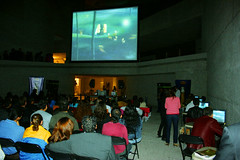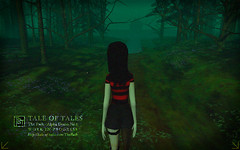As the audience for games is become bigger and more diverse, criticism of the hardcore games press is getting louder. We’ve complained about this issue concerning artistic games, but apparent it’s a problem for casual games as well.
On GameSetWatch, Simon Carless discusses the situation with Joel Reed Parker, realizing that perfectly fine casual games sink to the depths of mediocrity on sites like Metacritic, simply because they are not appreciated by hardcore game journalists:
Who can I trust to tell me whether my mother would like specific Wii games, other than me? And what if I don’t know anything about Wii games? This is a major problem.
Jay Barnson argues on Tales of the Rampant Coyote that it’s fine for game journalists to have a bias. But that they shouldn’t all have the same bias:
The real issue is this – who is the audience for these games? I get really tired of reading damning comments by hardcore gaming reviewers for games that were really never intended for them.
The problem seems to be similar to the one pointed out by Kellee in the comments of a Grand Text Auto post, talking about getting innovative games selected in the Independent Games Festival:
Those are the games that typically polarize people. A game will receive either high mark or low marks, and so its final score will be average.
In the games press, the situation seems to be lot more straightforward, though. It seems like games are graded in an almost objective way. Much like teachers in schools, the journalists seem to already know all the answers to the test. And then it is up to the game to deliver. It’s like a checklist of features and the more boxes you check, the more points you get. As a result, perfectly fine casual games cannot possible get a high score because they don’t have explosions, HDR lighting, bumpy monsters, character classes, complicated sphere grids, etc. This checklist attitude also means that journalists are absolutely incapable of dealing with features that are not in their list, or in the school test analogy, answers to questions that they didn’t ask (aka creativity).
On Lost Garden, Danc complains about Super Mario Galaxy, which was praised to the high heavens by the press but ultimately turns out to be much too difficult for the unsuspecting Wii player:
Each player has their own distinct playing style and many of these preferences are rarely captured by the hardcore journalists who review most games.
I disagree with Simon Carless that
this may be the moment in the history of games where the reviewers start diverging from the mainstream in a major fashion
as happened in movies some time ago. Simply because I don’t consider hardcore games to be on par with art films, culturally. But I am glad that we are starting to notice the discrepancies between the rhetoric of the games industry and the reasons why many people are actually playing games.










